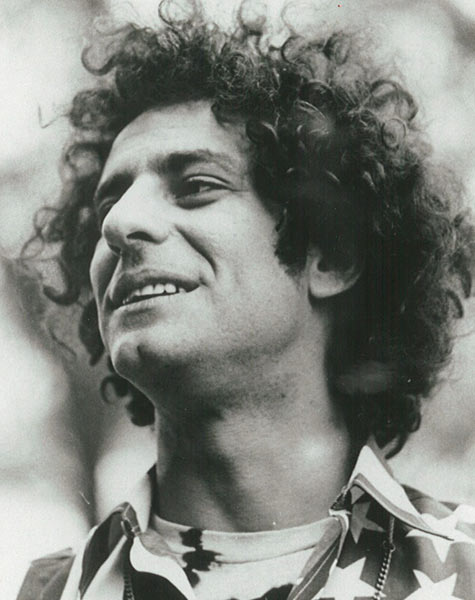
Abbie Hoffman |
This article originally appeared in the July 29th, 1994 issue of the Boston Phoenix
Defense attorney Leonard Weinglass: Will you please identify yourself for the record.
Abbie Hoffman: My name is Abbie. I am an orphan of America.
Weinglass: Where do you reside?
Abbie: I live in Woodstock Nation.
Weinglass: Will you tell the court and jury where it is?
Abbie: Yes. It is a nation of alienated young people. We carry it around with us as a state of mind in the same way the Sioux Indians carried the Sioux nation around with them. It's a nation dedicated to cooperation versus competition, to the idea that people should have a better means of exchange than property and money, that there should be some other basis for human interaction. It is a nation dedicated to –
Judge Julius Hoffman: Just where it is, that is all.
Abbie: It is in my mind and in the minds of my brothers and sisters. It does not consist of property or material but, rather, of ideas and values...
Judge: No, we want the place of residence, if he has one. Place of doing business, if you have a business. Nothing about philosophy or India, sir. Just where do you live. Now, you said Woodstock. In what state is Woodstock?
Abbie: It is the state of mind, in the mind of myself and my brothers and sisters.
Thus began Abbie Hoffman's testimony in the trail of the Chicago Seven, in which he was charge with conspiracy to riot at the previous year's Democratic National Convention. It was only weeks after the Woodstock Music and Arts Festival, in upstate New York, but already the battle to define Woodstock was under way.
Twenty-five years later, the struggle to interpret and claim the legacy of what promoters billed as "Three Days of Peace and Music" is still raging.
Woodstock II, the 25th-anniversary event, organized by the same promoters who sponsored the first festival, is under fire for selling out the myth. Tickets are $135 for two days. The audience will not be allowed to bring food, but instead will have to purchase scrip in order to eat, drink, or buy corporate-sponsored souvenirs. Police will be on hand to make sure there is no overt use of marijuana or LSD. All of this is in stark contrast to everything that made the original festival significant. Admission to that three-day event was $18 and most got in for free.
Recent press reports on Woodstock II have used terms like "Woodshlock," "Greedstock," "Lollapawoodstock," and "Woodstock 90210" to describe the money-making thrust of the nostalgia machine. And whereas the first Woodstock was symbolized by a cute little dove on a guitar, T-shirts with a vulture replacing the bird of peace have recently been spotted in upstate New York. Another T-shirt, featuring images of barbed wire reads WOODSTOCK – OCCUPIED TERRITORY.